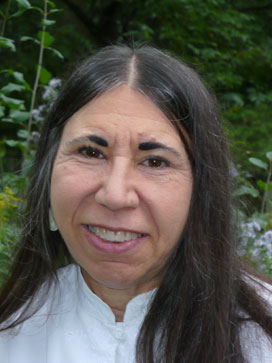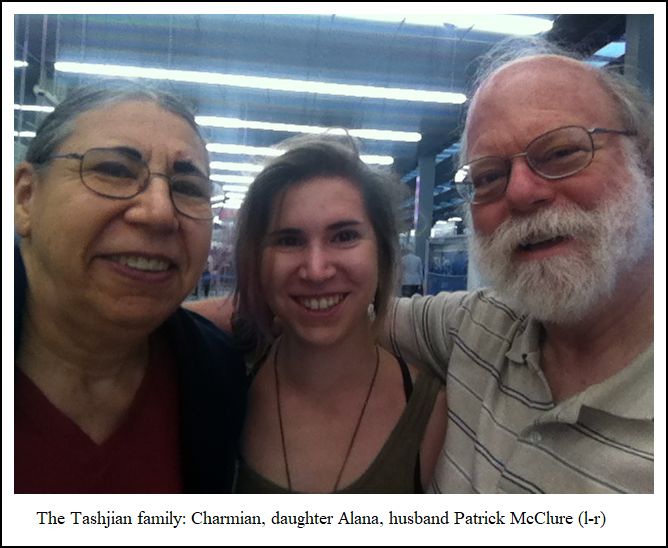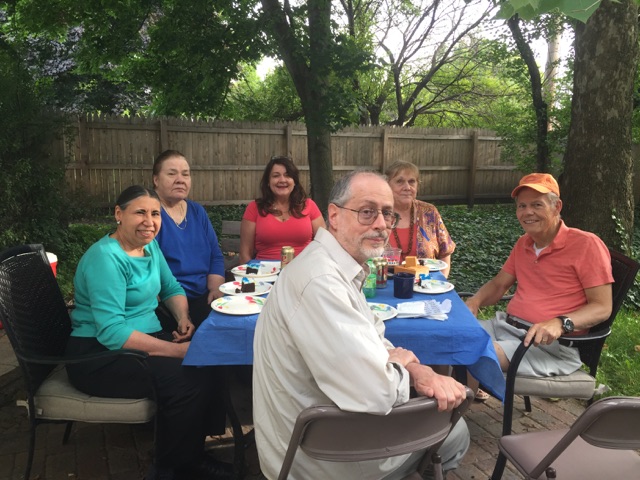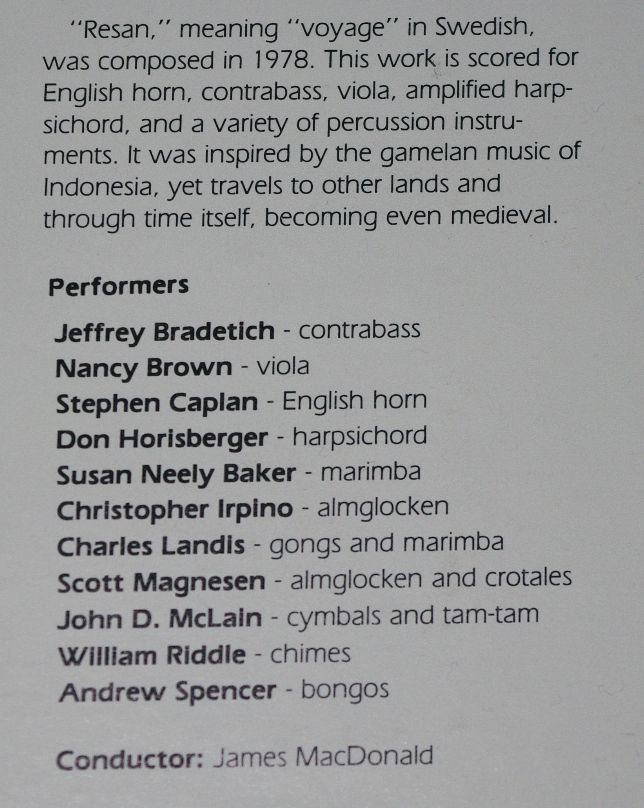

|
Charmian Tashjian teaches theory, aural skills, and other theory classes at Harper College in Palatine, Illinois, as well as humanities courses. She has taught classes ranging from music history, music theory and aural skills, and composition to acoustics, music appreciation, Trends in 20th & 21st Century Art & Music, and Women in the Arts, among others, at Columbia College, Northwestern University, DePaul, Lake Forest College, and the College of Lake County. She earned her doctorate and bachelor's degrees in music composition and theory with a minor in the humanities from Northwestern University, and her master's degree from Stanford University. She has received awards and commissions for her compositions for chamber, orchestral, and electronic works. Her compositions have been performed in concerts and on radio broadcasts throughout the United States, Europe, and Australia by various musical organizations, including the Ravinia Festival, the Chicago Chamber Musicians, Symphony II, the Civic Orchestra of Chicago, the DuPage Youth Symphony, and many others. Her music has been published and recorded commercially. |
 BD: You’ve got a husband and a family. How do
you balance the role of wife, and mother, and teacher, and composer?
BD: You’ve got a husband and a family. How do
you balance the role of wife, and mother, and teacher, and composer? BD: You’re constantly working on new pieces, I assume?
BD: You’re constantly working on new pieces, I assume? BD: Why this particular combination of instruments?
BD: Why this particular combination of instruments?This conversation was recorded in suburban Chicago on May 27, 1987. Portions were broadcast on WNIB two weeks later, and again in 1988 and 1995. This transcription was made in 2020, and posted on this website at that time. My thanks to British soprano Una Barry for her help in preparing this website presentation.
To see a full list (with links) of interviews which have been transcribed and posted on this website, click here. To read my thoughts on editing these interviews for print, as well as a few other interesting observations, click here.
Award - winning broadcaster Bruce Duffie was with WNIB, Classical 97 in Chicago from 1975 until its final moment as a classical station in February of 2001. His interviews have also appeared in various magazines and journals since 1980, and he now continues his broadcast series on WNUR-FM, as well as on Contemporary Classical Internet Radio.
You are invited to visit his website for more information about his work, including selected transcripts of other interviews, plus a full list of his guests. He would also like to call your attention to the photos and information about his grandfather, who was a pioneer in the automotive field more than a century ago. You may also send him E-Mail with comments, questions and suggestions.